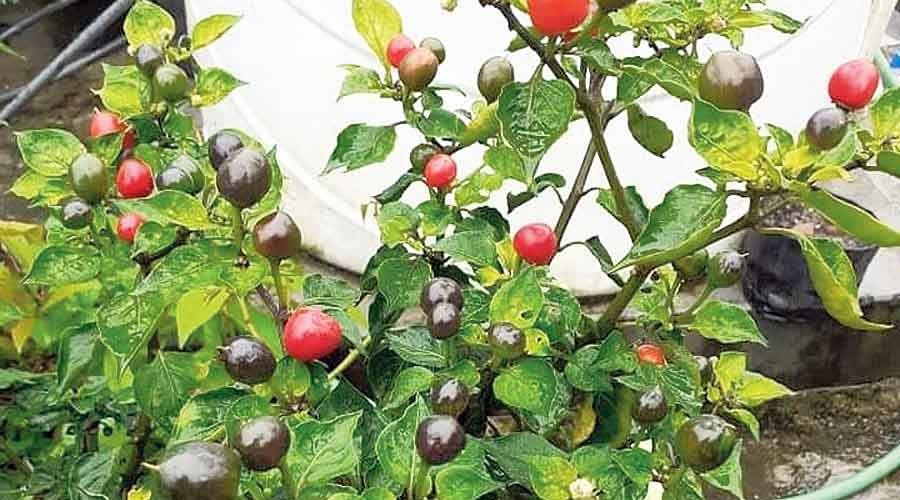“Dalle khursani” or the red cherry pepper chilli, which is grown in Sikkim and considered as one among hottest varieties in the world, has earned a geographical indication (GI) tag from the Union department of industry promotion and internal trade.
Although the plant is cultivated in the neighbouring Darjeeling hills also, it was included in the Geographical Indications Registry of the Government of India on the basis of an application filed by the Guwahati-headquartered North Eastern Regional Agricultural Marketing Corporation Limited (Neramac) on behalf of Sikkim.
A GI is a name or a sign given to a certain product that relates to a specific geographical location or origin like a region, town or country. The tag is part of intellectual property rights that come under the Paris Convention for the Protection of Industrial Property.
The August 31 issue of the Geographical Indications Journal, published by the Department for Promotion of Industry and Internal Trade, mentioned the tag for dalle khursani.
The chilli is known to have a Scoville scale at the range of 1,00,000 to 3,50,000 SHU (Scoville Heat Units). The Scoville scale is a measurement used to trace the spiciness of chilli peppers across the world.
“The granting of GI tag certifies that dalle khursani is endemic to Sikkim and the neighbouring areas of the Darjeeling hills as it has been mentioned in the journal,” said a government official.
For north Bengal and Sikkim, this is the third product of the region to earn a GI tag. Earlier, GI was conferred on a large cardamom cultivated in Sikkim. Also, the Darjeeling Tea was the first Indian product to get a GI tag. However, it is not clear if the red cherry pepper chilli will be known in the name of a region.
Last year, Sikkim had produced around 250 tonnes of dalle khursani.
“The figure is certain to go up this year. Government intervention by way of providing seeds, nutrients and other items will definitely boost production,” said M.T. Sherpa, secretary, Sikkim horticulture department.
The largest manufacturer of dalle khursani products is the state government-owned Sikkim Supreme, which alone procured about 50 tonnes of the chilli last year to make pickles and pastes.
“Around 60 per cent of tonnes are sold in the state. Our other major markets are the Northeast and north Bengal,” said an official.
The August journal also revealed the news of GI tags for some other products which include Rataul Mango of Uttar Pradesh and Tamenglong Orange of Manipur.
“Red Cherry Pepper (Capsicum annum var cerasiforme), locally known as Dalle khursani in Sikkim is well known for its unique flavour and high pungency. The crop belongs to the family Solanaceae and genus Capsicum. Plant grows up to 100-130 cm height under open field and 150-180 cm height in green house condition,” said the journal.
The cherry-size red chillies are eaten in various forms, most famously as sauce to go with the region’s equally famous momos. They are also used to make pickles and pastes.
The red hot chilli, which was retailing at about Rs 400 per kilogram in Gangtok markets on Wednesday, are also known to have medicinal properties.
“It is high in vitamin A, vitamin E, and potassium, and low in sodium. One hundred grams of fresh dalle khursani have 240 mg of vitamin C (five times higher than an orange), 11,000 IU of vitamin A, and 0.7 mg of vitamin E,” the journal said.
The conferment of GI tag on the chilli, which is also liked by tourists visiting Darjeeling, Kalimpong or Sikkim, has also made the locals react with glee.
“Finally, the GI registration is approved for Dalle Khursani or our Cherry pepper chilli. Great job NERAMAC. This is landmark for an important produce of #Sikkim,” tweeted P. D. Rai, a two-time Parliamentarian from Sikkim.










